Study sources of Quantum Physics
Quantum physics is the subject that describes the nature at small distances incredibly well. Due to its infamous difficulty you may think that such a branch is suitable only for professional scientists. Nevertheless, you can learn a thing or two about it even if you do not intend to be a physicist.
And what about the difficulty? The difficulty of quantum physics has several origins. First, there is a difficulty coming from the microworld, i.e., the world you have no experience with and have no idea how it works. Since in many aspects microworld works differently from the well-known macroworld, quantum physics will challenge your imagination and in the advanced sources also your abstract thinking. The second difficulty came from the fact that in the early days most of the sources were advanced and really hard to read. However, nowadays we have a completely different situation. During the last more than 100 years, we have significantly improved in how to teach the subject.
Since there is still a lot of sources of various levels (mostly not intended for beginners), it may be difficult to find out a source that: a) is not too advanced, b) explains the subject comprehensibly, and c) describes the subject with a sufficient accuracy. This article presents suitable starting sources for your study depending on the current level of your expertise. If you know nothing about quantum physics, prepare for a wild ride because the nature is much more interesting than you have ever thought.
Notes:
Content
Types of sourcesQuantum physics related branches
Suitable sources for different levels of expertise
Levels of expertise
Types of sources
You can study quantum physics from different types of sources. Each of the types has its own pros and cons, and each of them is suitable for different levels of expertise. The complete table is the following:
| Type of source | Level of expertise | Pros | Cons | |||
|---|---|---|---|---|---|---|
| "I know nothing or a little about it" |
Undergraduate student |
Postgraduate student |
Researcher | |||
| Videos | ✔ | ✔ | visual, short | small scope | ||
| Audios | ✔ | ✔ | relatively short | small scope, rare, non-visual | ||
| Popular books | ✔ | ✔ | reader-friendly | small scope | ||
| Public lecture | ✔ | ✔ | visual, Q&A | small scope, fixed date event1 | ||
| Textbooks | ✔ | ✔ | contains only important topics | static | ||
| Subject lectures | ✔ | ✔ | visual, Q&A | fixed date event1 | ||
| Monographs | ✔ | ✔ | ✔ | one or a few topics | static | |
| Software/Interactive courses | ✔ | ✔ | ✔ | ✔ | visual, interactive | rare |
| Journal articles | ✔ | ✔ | ✔ | frontier of knowledge | hard to understand | |
| Conference lectures | ✔ | ✔ | specific topic(s), social networking, frontier of knowledge |
fixed date event1, hard to understand | ||
1 It can be resolved by the organizer of the event by recording the event and make it online.
Quantum physics related branches
Before you start to study quantum physics or any part of it, you need to know the branches that are related to quantum physics:
- Quantum Mechanics (abbr. QM) - the branch of physics that studies systems with a fixed small number of particles and fixed properties. In most cases quantum mechanics is non-relativistic, i.e. works well only for slowly moving particles compared to the speed of light. In many cases quantum mechanics describes systems of particles in an environement without caring about the origin of the environment. (wiki page)
- Quantum Field Theory (abbr. QFT) - the branch of physics based on quantum mechanics that studies systems with a generally a non-fixed number of particles, i.e., particles may be created or annihilated. It manages to do that via a field description where the individual particles are excitations (bumps) in the corresponding field. Quantum field theory is relativistic, that is it works well for both slow and fast particles. (wiki page)
- Particle Physics, or equivalently High-energy physics (abbr. HEP) - the branch of physics that studies components of matter and interactions among them, both the existing (and experimentally verified) and hypothetical (motivated by different reasons and still not experimentally ruled out). In most situations, particle physics uses quantum field theory as a mathematical tool for an accurate description of the studied systems. (wiki page)
- Quantum Physics - Quantum Mechanics + Quantum Field Theory. Some authors also include Particle Physics.
Suitable sources for different levels of expertise
| Level | History of Quantum Physics |
Quantum Mechanics | Quantum Field Theory | Particle Physics |
|---|---|---|---|---|
| "I know nothing or a little about it" |
Show me | |||
| Undergraduate student | Show me | Show me | Show me | Show me |
| Postgraduate student | Show me | Show me | Show me | Show me |
| Researcher | To be decided... | To be decided... | To be decided... | To be decided... |
Levels of expertise
In this text we distinguish four levels of expertise: "I know nothing or a little about it", Undergraduate student, Postgraduate student, and Researcher.
"I know nothing or a little about it" level
In this phase, you need to understand:
- ... that the goal of quantum physics is to describe the nature as accurately as possible.
- ... that quantum physics was originally motivated by hard-to-explain results of several experiments coming from the domain of small distances. This is, why quantum physics is mainly focused on microworld.
- ... that the predecessor of quantum physics, classical physics, failed to explain the results of the experiments. That is, quantum physics is an inevitable successor of classical physics.
- ... that quantum physics is not a speculation. Quantum physics not only explains a vast amount of phenomena but has also passed an immense amount of experimental tests.
- In the introductory sources, Quantum Mechanics, Quantum Field Theory, and Particle Physics are usually described together with no clear distinction among them.
- You will need practically no math. If any equation is presented to you, in most cases it is just a demonstration that physicists have an equation and that they can use it to calculate things. You can remember that the equation exists, but you need neither to remember the exact form of the equation nor to understand that equation. In the more advanced sources, you will have an opportunity to meet the same equation again (even several times) and to understand it in its entirety.
- The aspect of "no math" implies that nothing will be derived, i.e., everything you will come across will be a collection of statements - sometimes with an explanation, sometimes with a reference to an observed phenomenon or a done experiment.
- If you do not understand something, do not be ashamed to read/watch/listen it once more time. You will be neither the first nor the last person who has done that to understand the subject. Time to time even several attempts will not help. In that case, skip over it. Maybe a more detailed description that you will get in the advanced sources is what you need to have your "I see" moment.
Sources (ordered by level increasingly)
|
① DoS - Domain of Science, Map of Quantum Physics download poster for free, buy the paper poster, and the related YouTube video, 22 minutes. In learning a subject it is very useful to know what you may come across while doing that. Do not expect any explanations here. The knowledge of the appropriate quantum-related terms also gives you an opportunity for a proactive study because now you know what you do not know. |

|
|
② Spark, The Mind Bending Story of Quantum Physics and Exploring the World of Quantum Physics with Jim Al-Khalili 2 YouTube videos: Part 1 (59 minutes) and Part 2 (59 minutes). The videos are a very light introduction to history and several concepts of quantum physics. When watching, do not forget that most of the demonstrations in the macroscopic world are only analogies to the behavior on the microscopic level. |
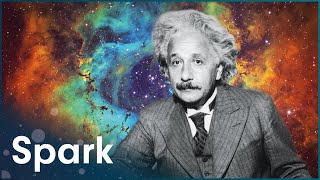
|
③ M. Chown, Quantum Theory Cannot Hurt You (Amazon link) book, almost a pocket edition, 224 pages, with glossary and index; ISBN: 9780571315024 The book covers modern physics, that is quantum physics and general relativity. It is probably the best introduction book to modern physics I have ever read. The book contains very vivid examples, sometimes pushed to their extremes to emphasize their weirdness or unexpectedness. |
 |
|
④ DoS - Domain of Science, If You Don't Understand Quantum Physics, Try This! YouTube video, 13 minutes. The video describes whether physicists understand quantum physics, what applications of quantum physics are, and what quantum physics describes. In the case of quantum mechanics, it describes how quantum mechanics describes particles, namely by a wavefunction and the basic consequences this description has. Besides that, the video concisely explains the double-slit experiment, superposition, entanglement, quantum tunnelling, uncertainty principle, and energy quantization in an atom. The video closes with a visual summary. |
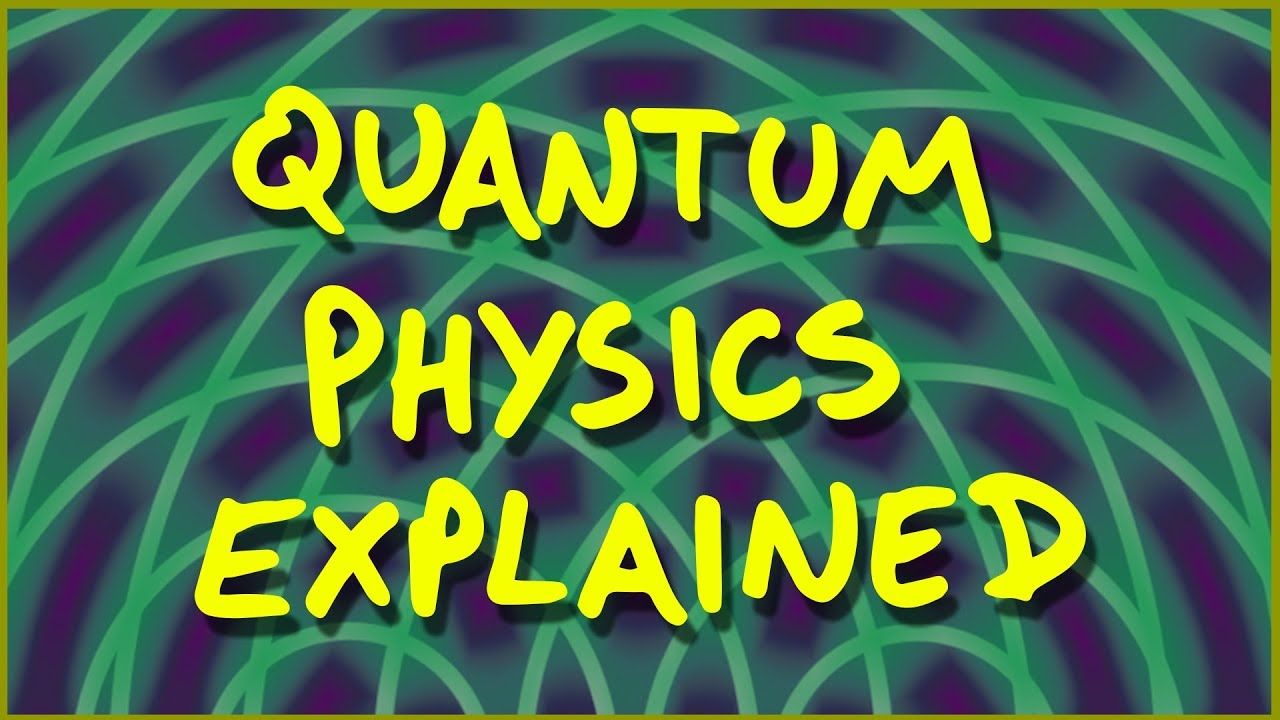
|
|
⑤ J. Baker, 50 Quantum Physics Ideas You Really Need to Know (Amazon link) book, 208 pages; with glossary and index; ISBN: 9781780879116 The book is a very good compilation of the basic quantum physical topics. It is very well organized. It contains 50 topics in a concise form, each topic is covered in 4 to 6 pages. |
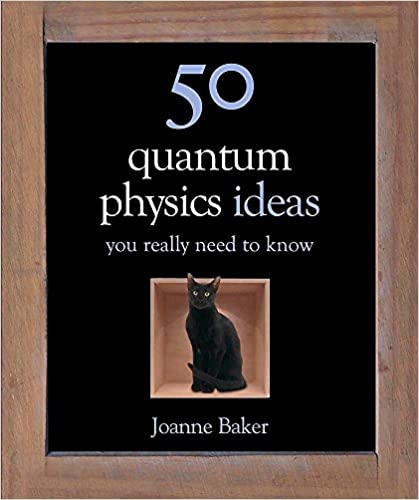 |
|
⑥ K. W. Ford, 101 Quantum Questions - What You Need to Know About the World You Can't See (Amazon link) book, 304 pages, no glossary, with index, ISBN: 9780674050990 The book digs deeper than the previous two books. Time to time the book contains a simple equation. The question-answer form makes the book incredibly good for the real understanding the subject through giving you a different perspective. |
 |
Undergraduate student
Here I expect:
- you are an undergraduate student with quantum mechanics, quantum field theory or particle physics in your study program, or
- you are an entusiastic layman.
Sources on history of Quantum Physics
|
① M. Veltman, Facts and Mysteries in Elementary Particle Physics (Amazon link) book, 352 pages, name index, subject index, ISBN: 9789813237490 This is an incredibly well-written book. It is organized by concepts but always mentions its history including their protagoinsts. Life and work of the protagonists is consicely described always on an individual page. Although being a popular book, it consists many insights. It is definitely worth to read it twice, now to get the general idea about the subject and later to appreciate the details you do not see elsewhere. |

|
Sources on Quantum Mechanics
To start Quantum Mechanics on this level and understand everything, you need to know basics of Elementary algebra, Linear Algebra (at least be able to work with vectors and matrices), and Calculus (at least be able to work with derivatives and integration).
|
① David J. Griffiths, Introduction to Quantum Mechanics, 3rd edition (Amazon link) book, 508 pages, with subject index and an appendix summarizing Linear Algebra you will need, ISBN: 9781107189638 This is an exceptionally well-written introductory book on quantum mechanics, with many on point questions and insights. Besides that it consists a lot of illustrations and is typographically well processed. It is a joy to study from a book like this. If you do not know what motivated the creation of quantum mechanics, go back to the "I know nothing or a little about it" level and leave this book until later. This is because this books will not tell you that, and you might get the impression that quantum mechanics is an subject on its own with no relation to our physical world. |

| |
|
② L. Susskind, Quantum Mechanics: The Theoretical Minimum (Amazon link) book, 364 pages, almost pocket edition, with subject index, ISBN: 9780141977812 If you know several quantum-mechanical concepts and want to start to use mathematics in Quantum Mechanics, then this book is the best, especially if your level of mathematics is not too advanced. The book will introduce you many important aspects of Quantum Mechanics and shows you in a very comphehensible way how to describe them mathematically. Since most of the Linear Algebra you will be using is described on the way, the knowledge you need to know to finish this book is basic Calculus (derivatives and integration). |
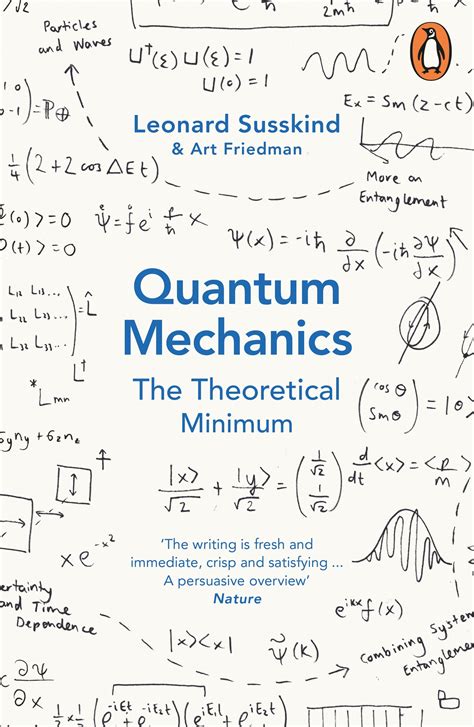
|
Sources on Quantum Field Theory
To start Quantum Field Fheory on this level and understand everyhting, you need to know basics of Elementary algebra, Linear Algebra, Calculus, Quantum Mechanics and Theoretical Physics (at least Hamiltonian and Lagrangian formalism).
|
① J. Schwichtenberg, No-Nonsense Quantum Field Theory (Amazon link) book, 642 pages, with index, Further reading recommendations, and appendix "Cumberstone Calculations", ISBN: 9783948763015 This book is very student-friendly. The student-friendly approach is demonstrated: a) by chapter "The Bird's Eye of View" which gives you a simplified overview of the subject, b) by chapter "What Everybody Ought To Know About Quantum Field Theory" which gives you a condended course on the main topics, c) by summarizing the starting point or the mail goal in the beginning of the most sections, d) by not only explaining the main concepts in a comprehensible way but also explaining terms which are rarely explained elsewhere, and e) by presenting calculations without skipping the intermediate steps (which is normal in more advanced texts). |
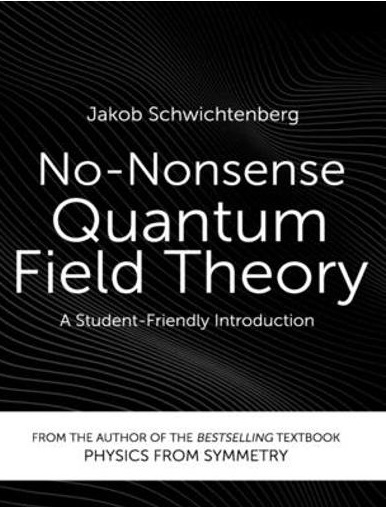
| |
|
② T. Lancaster, Quantum Field Theory for the Gifted Amateur (Amazon link) book, 512 pages, index, Appendices: Further reading, Useful complex analysis, ISBN: 9780199699339 If you are good at math and know something about theoretical physics, this book is perfect for you. The book presents you in 50 chapters a very wide range of topics on quantum field theory. Even though it is roughly 10 pages per chapter, the book digs relatively deep compared to other books. If after reading this book you decide to dig even deeper and to continue in studying quantum field theory, the book can be used as a good source of topics you would like to know more about. |

| |
|
③ A. Das, Lectures on Quantum Field Theory, 2nd edition (Amazon link) book, 776 pages, with index, ISBN: 978-9811222160 This book is organized in a way similar to most of the textbooks on quantum field theory are organized. Nevertheless, this book stands out because of clear derivations, the straight-forward language and the clear arrangement. |

|
Sources on Particle Physics
To start Particle Physics on this level and understand everyhting, you need to know basics of Quantum Field Theory and Classical Electrodynamics.
|
① David J. Griffiths, Introduction to Elementary Particles, 2nd edition (Amazon link) book, 470 pages, with index, with appendices: Dirac Delta Function, Decay Rates and Cross Sections, Pauli and Dirac Matrices, Feynman Rules (Tree Level), ISBN: 978-3527406012 This is a classic textbook among the particles physics textbooks. On the first almost 60 pages, the book describes historical context and the main experimental results. Then the book gradually touches all the main topics of elementary particle physics in a very pedagogical manner. Since the last edition came out in 2008, the book covers only the knowledge of Higgs particle known prior to its experimental discovery in 2012. |

| |
|
② M. Thomson, Modern Particle Physics (Amazon link) book, 570 pages, with index, Further reading, and several appendices, ISBN: 9781107034266 This incredibly well-written book is probably the best up-to-date introductory book on elementary Particle Physics. It is written in a clear and straight-forward language, contains a lot of illustrations, and thus it is easy to follow the main idea of each chapter. The readabillity is also improved by the summary at the end of each chapter. Time to time the book refers an experiment and presents its result. |

| |
|
③ A. Bettini, Introduction to Elementary Particle Physics, 2nd edition (Amazon link) book, 492 pages, with index, ISBN: 9781107050402 A very well-written book. If you tend to go to the experimental side of the subject rather than to the theoretical one, this book is for you. Don't get me wrong, the book covers all the theoretical aspects of elementary Particle Physics, but more often than other books mentions experiments relating to the studied subject and more often presents the concrete numbers both calculated theoretically and measured in an experiment. |

|
Postgraduate student
Here I expect:
- you are a postgraduate student and you have quantum mechanics, quantum field theory or particle physics in your study program, or
- you are a very entusiastic layman.
Sources on history of Quantum Physics
|
① V. V. Ezhela, Particle Physics: One Hundred Years of Discoveries (An Annotated Chronological Bibliography) (Amazon link) book, 336 pages, with chronological list, author index and subject index The book contains a chronologically ordered list of 595 seminal paper between 1895 and 1995. Each paper is presented by the authors, main result, reference to the paper, an excerpt from the paper or the abstract of paper depending what expresses the result best, related references and related topics. The books can be used as a starting point for a detailed study of history of the subject or a study of main achievements in particle physics. |

| |
|
② A. Pais, Inward Bound: Of Matter and Forces in the Physical World (Amazon link) book, 682 pages, ISBN: 9780198519713 The book covers the period between 1895 (the discovery of X-rays) and 1983 (the discovery of Z boson). |

|
Sources on Quantum Mechanics
|
① C. Cohen-Tannoudji, Quantum Mechanics, Volume 1: Basic Concepts, Tools, and Applications, 2nd edition (Amazon link) C. Cohen-Tannoudji, Quantum Mechanics, Volume 2: Angular Momentum, Spin, and Approximation Methods, 2nd edition (Amazon link) C. Cohen-Tannoudji, Quantum Mechanics, Volume 3: Fermions, Bosons, Photons, Correlations, and Entanglement, 1st edition (Amazon link) book |
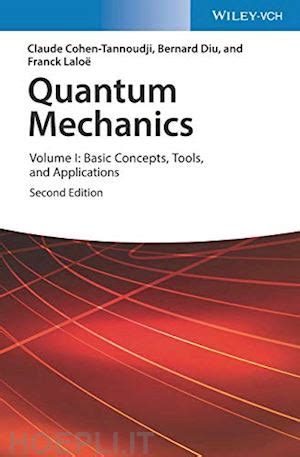

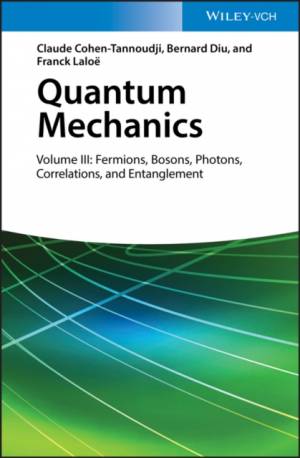
|
Sources on Quantum Field Theory
|
① M. E. Peskin, D. V. Schoeder, An Introduction To Quantum Field Theory (Amazon link) book, 868 pages, with appendix "Reference Formulae", bibliography and index, ISBN: 978-0367320560 |
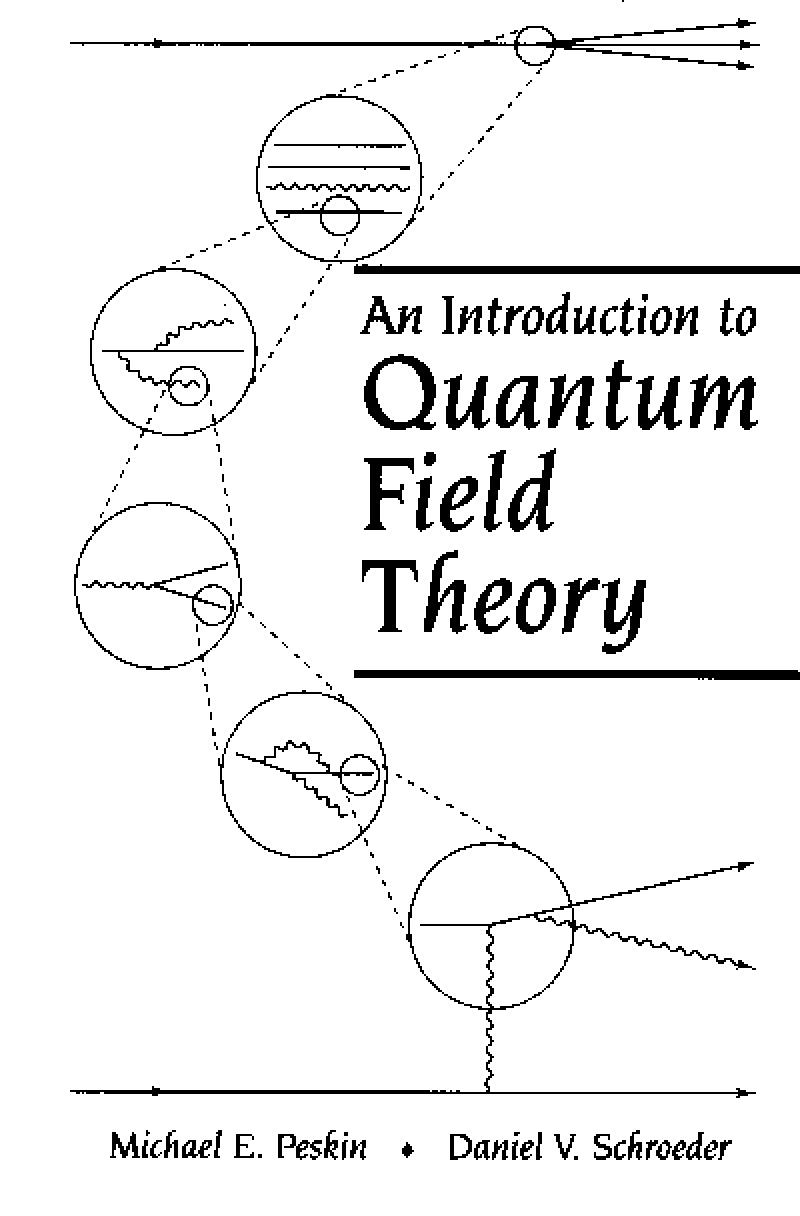
| |
|
② M. D. Schwartz, Quantum Field Theory and the Standard Mode (Amazon link) book, 859 pages, with appendices, references and index, ISBN: 9781107034730 |

|
Sources on Particle Physics
|
① Y. Nagashima, Elementary Particle Physics: Quantum Field Theory and Particles V1 (Amazon link) Y. Nagashima, Elementary Particle Physics: Foundations of the Standard Model (Amazon link) Y. Nagashima, Beyond the Standard Model of Elementary Particle Physics (Amazon link) book |



|
© 2021- Jiri Voltr, last update 2022/04/24.